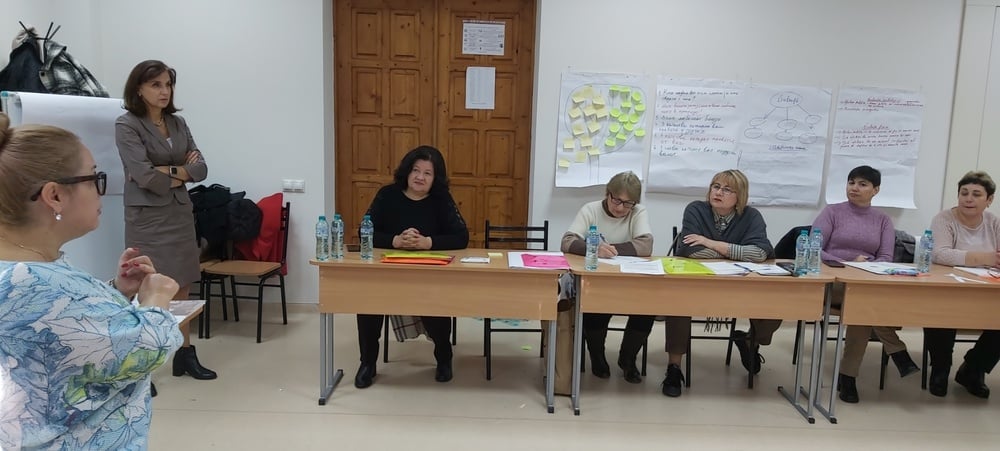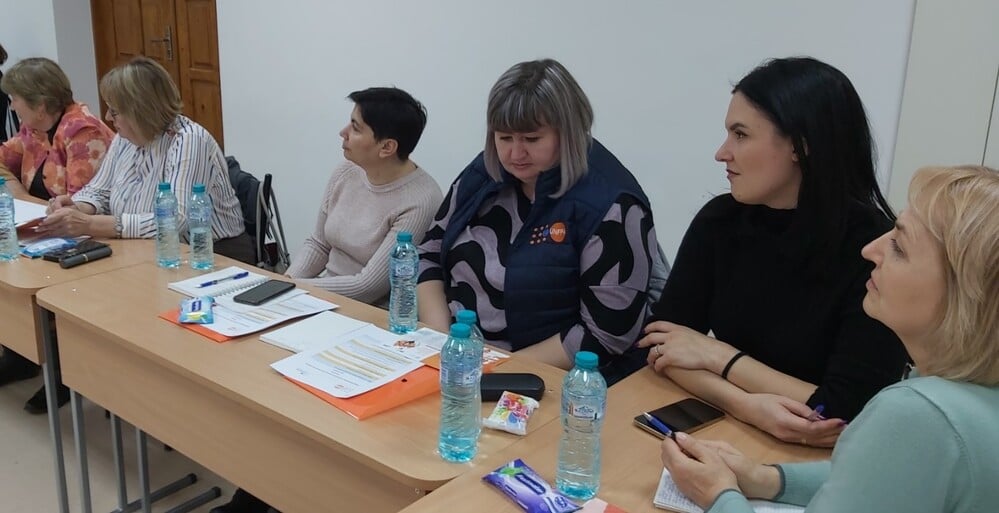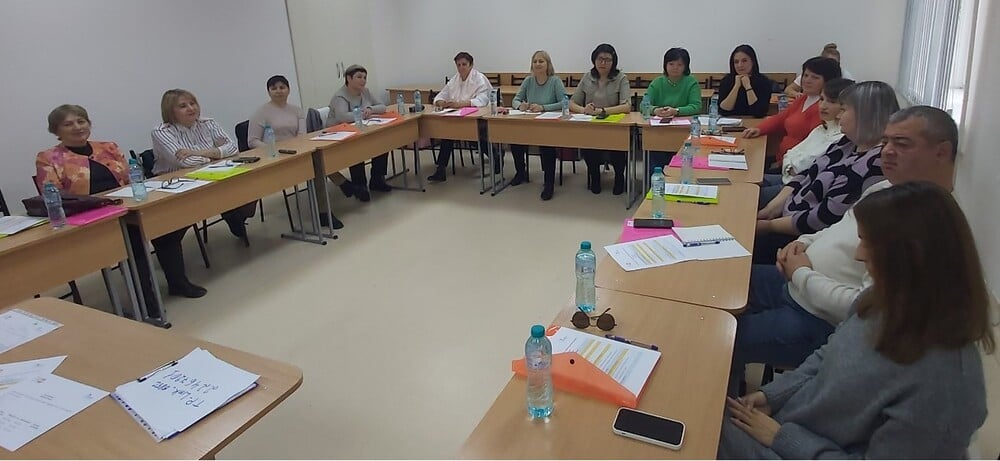The United Nations Population Fund (UNFPA) and the Homecare Association, with the support of the United States, have launched the pilot program "CareSafe: Acasă în Siguranță." This program creates a support network offering a safe environment and access to essential services for the safety and well-being of women and girls with limited mobility, including those with disabilities and refugees from host communities.
To provide a coordinated response and support to survivors of gender-based violence (#GBV), home care teams, nurses, and social workers from Homecare centers in Ocnița and Vulcănești participated in training sessions on preventing and managing cases of gender-based violence. These sessions addressed physical, psychological, and financial abuse.

The event also included discussions on identifying forms of violence that affect people with limited mobility, such as physical, sexual, psychological, and financial abuse, and the impact of such abuse on physical and mental health. Participants learned how to communicate effectively with survivors, recognize signs of abuse, and implement strategies to create a safe and supportive environment.

The "CareSafe" program for protecting women with limited mobility will run for a year. Through this initiative, UNFPA and Homecare are creating a safe, supportive environment, contributing to the improvement of gender-based violence response mechanisms and promoting gender equality.

According to statistics, in the last year, the proportion of people with disabilities in Moldova was 6.5%. Research shows that women with disabilities are more vulnerable to domestic violence and sexual assaults than women without disabilities, experiencing abuse for longer periods and in more intense forms.


